Do Yoon Kim
Hippo: Taming Hyper-parameter Optimization of Deep Learning with Stage Trees
Jun 22, 2020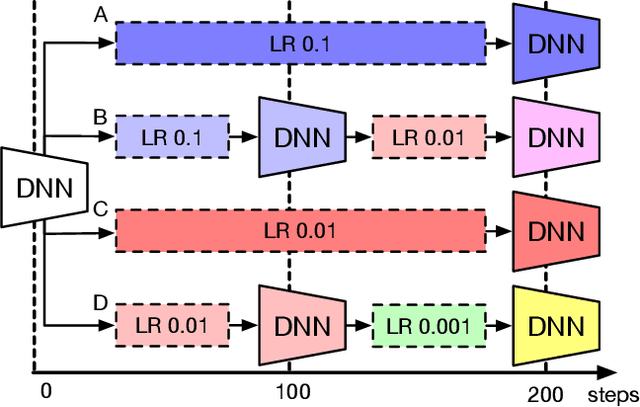

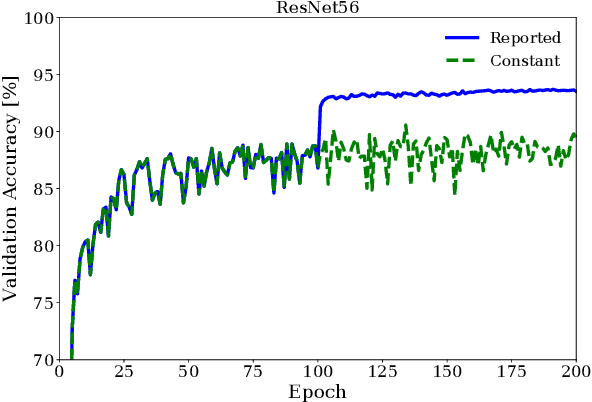
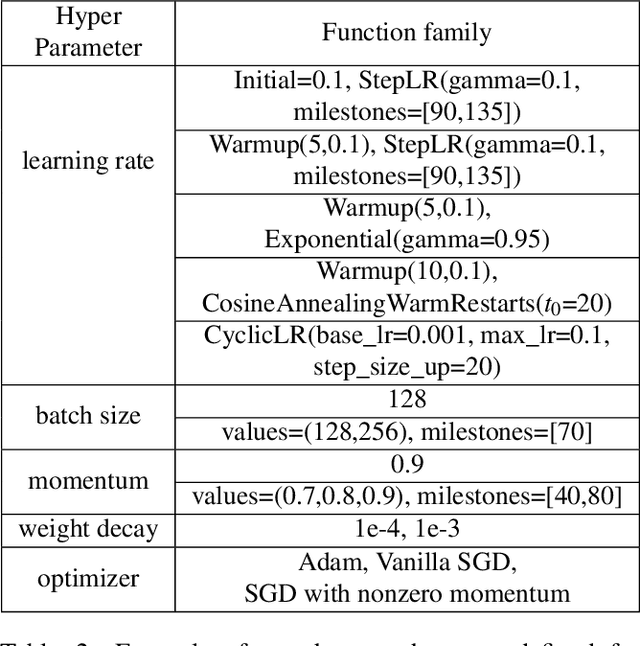
Abstract:Hyper-parameter optimization is crucial for pushing the accuracy of a deep learning model to its limits. A hyper-parameter optimization job, referred to as a study, involves numerous trials of training a model using different training knobs, and therefore is very computation-heavy, typically taking hours and days to finish. We observe that trials issued from hyper-parameter optimization algorithms often share common hyper-parameter sequence prefixes. Based on this observation, we propose Hippo, a hyper-parameter optimization system that removes redundancy in the training process to reduce the overall amount of computation significantly. Instead of executing each trial independently as in existing hyper-parameter optimization systems, Hippo breaks down the hyper-parameter sequences into stages and merges common stages to form a tree of stages (called a stage-tree), then executes a stage once per tree on a distributed GPU server environment. Hippo is applicable to not only single studies, but multi-study scenarios as well, where multiple studies of the same model and search space can be formulated as trees of stages. Evaluations show that Hippo's stage-based execution strategy outperforms trial-based methods such as Ray Tune for several models and hyper-parameter optimization algorithms, reducing GPU-hours and end-to-end training time significantly.
Stage-based Hyper-parameter Optimization for Deep Learning
Nov 24, 2019
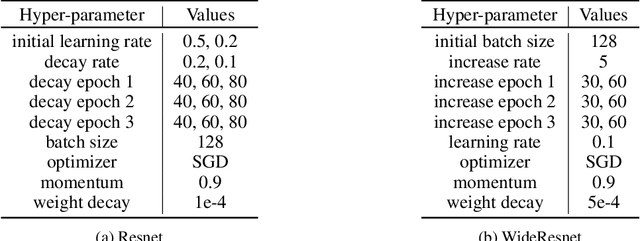

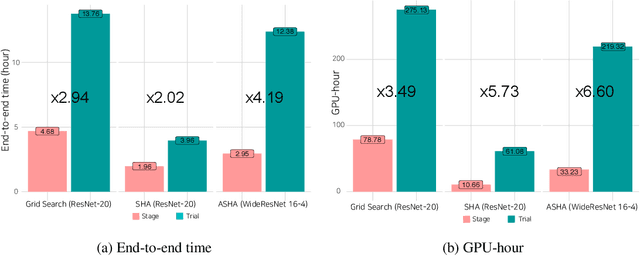
Abstract:As deep learning techniques advance more than ever, hyper-parameter optimization is the new major workload in deep learning clusters. Although hyper-parameter optimization is crucial in training deep learning models for high model performance, effectively executing such a computation-heavy workload still remains a challenge. We observe that numerous trials issued from existing hyper-parameter optimization algorithms share common hyper-parameter sequence prefixes, which implies that there are redundant computations from training the same hyper-parameter sequence multiple times. We propose a stage-based execution strategy for efficient execution of hyper-parameter optimization algorithms. Our strategy removes redundancy in the training process by splitting the hyper-parameter sequences of trials into homogeneous stages, and generating a tree of stages by merging the common prefixes. Our preliminary experiment results show that applying stage-based execution to hyper-parameter optimization algorithms outperforms the original trial-based method, saving required GPU-hours and end-to-end training time by up to 6.60 times and 4.13 times, respectively.
 Add to Chrome
Add to Chrome Add to Firefox
Add to Firefox Add to Edge
Add to Edge